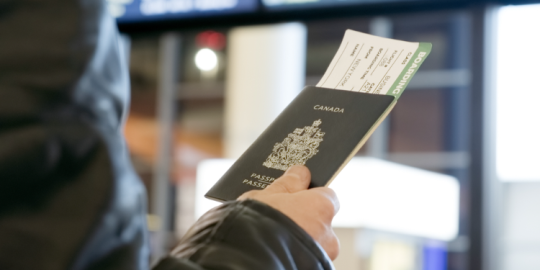Unemployment among nationals dropped to 11%, the lowest level since 2009. The jobless rate rose to 22.5% for Saudi women and declined to 5.2% among Saudi men. The latest expat exodus from the private sector started in the second quarter of 2020, as the coronavirus pandemic hit, and has continued each quarter since then. On the other hand, last year, Saudi Arabia invested in recovering its economy through expatriation.
Saudi Arabia is welcoming expats
The country has granted citizenship to a group of expatriates with specific abilities, becoming the second in the Gulf Arab States, after the United Arab Emirates, to introduce a formal naturalization program for foreigners. That works with specific skills as doctors, clerics, and academics who specialize in engineering, chemistry and communications. This followed a more flexible visa policy in recent years, offering more extended residencies for certain types of investors, students, as well as professionals and their families.
According to the Saudi Press Agency, the naturalization program will seek out individuals with scholarships and who work or study in the fields of medicine, science, culture, sports, and technology. The government wants to create an “attractive environment” to cultivate and retain exceptional talent to help achieve their Vision 2030 goals, which is a plan of reforms to create jobs and reduce the Saudi economy's dependence on oil.
Contrast: secondary jobs and risks
Although the country seems open for expatriates, especially high talented ones, a large proportion of the foreigners in Saudi Arabia hold blue-collar jobs as construction workers, cleaners, waiters, and drivers. Just over half of the 6.3 million non-Saudis in the private sector were categorized as filling “elementary occupations” in the latest data, while over 900,000 were labeled as “craft and related trades workers.”
In terms of risks, expats interested in moving to Saudi Arabia should be aware of the kingdom's rules for working expats. Otherwise, they can face serious financial consequences. The Saudi government imposes a fine of SR50000 ($13.329,23) on freelancers (self-employed expats) who work in the kingdom irregularly, which means without the Iqama transfer. Employers who allow their workers to engage in freelancer jobs or let their workers perform activities for other employees will also be punished. For them, there is a maximum jail term of six months, along with fines amounting up to SR100,000 ($26.654,18).
Asian expats exodus to Saudi Arabia
Although Saudi Arabia is profiting from a marketing boom with the increase in expats population, Asia has experienced an exodus of expatriates. Lockdown fatigue is tempting expats to make the move from Asia to Saudi Arabia and UAE. Recruiters in Dubai saw a 20% increase in inquiries from people looking to move from Singapore last year, while Thailand is sending workers to Saudi Arabia massively after 30 years of hiatus. Saudi Arabia used to be a popular destination for Thai expats, with more than 300,000 of them living and working in the Kingdom until relations between the two countries stalled in the 1980s. Now with the Covid-19 crisis and the impact on job opportunities, relations have been tied again. More than 1,000 jobseekers had already applied to work in Saudi Arabia last March. The preferred sectors are engineering and construction — especially welding — as well as healthcare. According to the Saudi labour ministry's data, there are currently only around 1,350 Thai workers in Saudi Arabia, employed mainly as technicians and household staff.
The Asian economy has been seriously impacted together with workers, especially expats, as some multinational companies have relocated out of Hong Kong to Singapore and Malaysia. Restaurants in Hong Kong, for example, are surviving with new limitations on selling takeout, when home deliveries after 6:00 pm have been suspended again. Hair salons were recently allowed to reopen, but gyms and bars were ordered to close in January and would not reopen until at least after mid-April.
More expats are now choosing to leave Hong Kong due to the frustration over the city's Coronavirus restrictions and lack of a clear reopening plan. But, Singapore and Malaysia have been strengthening their Employment Pass (EP). As the number of expats increases in both countries, competition in the labour market jumps. The reason for Hong Kong expatriates' exodus is mostly due to their strategy that emphasizes social distancing, limiting travel and shutting most non-residents out, except when coming from China and Macao. Expats and even locals arriving in the city have to contend with one of the world's longest quarantines, paying to isolate in a hotel room for up to three weeks.
Expats situation in Hong Kong
Sonia Samtani is the CEO of All About You Wellness Centre and lives in Hong Kong. She comments on how are expats coping with the current COVID-19 situation and why many are leaving. “Many people in Hong Kong have opted to leave the country due to the changes induced to our lifestyle with the recent pandemic. Some repercussions include restaurants being closed after 6 pm and reduced to 2 people per table, schools closed for months and summer holidays moved forward, some families needing to be separated from young children who had the virus for quarantine.”
She comments on the lack of opportunities for expatriates during the Covid-19 crisis and how the situation is already getting steady in Hong Kong. “Expats had to consider the option to move back to their home country, and many of them have moved abroad. But, I have to say that in the recent few weeks, things are looking more promising, and we seem to have found more stability than before”, she says.
















